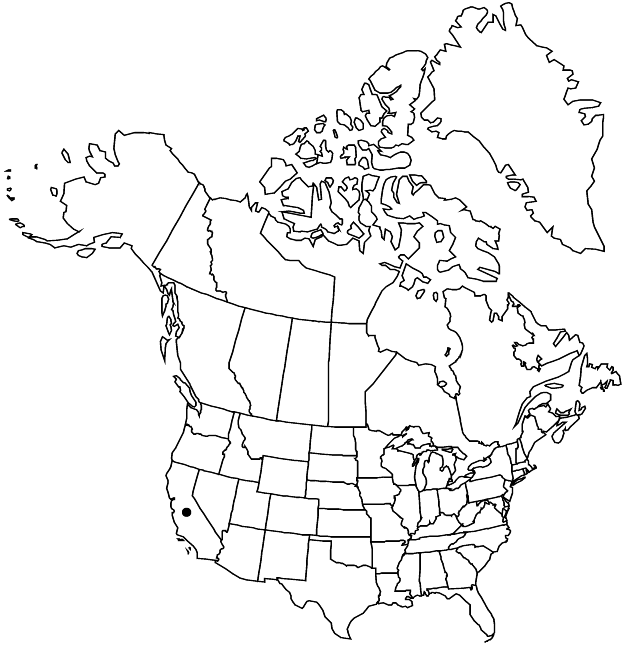Difference between revisions of "Eriogonum parishii"
Proc. Amer. Acad. Arts 17: 379. 1882.
FNA>Volume Importer |
imported>Volume Importer |
||
| (One intermediate revision by one other user not shown) | |||
| Line 47: | Line 47: | ||
|publication year=1882 | |publication year=1882 | ||
|special status= | |special status= | ||
| − | |source xml=https:// | + | |source xml=https://bitbucket.org/aafc-mbb/fna-data-curation/src/2e0870ddd59836b60bcf96646a41e87ea5a5943a/coarse_grained_fna_xml/V5/V5_797.xml |
|subfamily=Polygonaceae subfam. Eriogonoideae | |subfamily=Polygonaceae subfam. Eriogonoideae | ||
|genus=Eriogonum | |genus=Eriogonum | ||
Latest revision as of 22:14, 5 November 2020
Herbs, spreading, annual, 1–4(–5) dm, glabrous, greenish to reddish brown. Stems: caudex absent; aerial flowering stems erect, solid, not fistulose, 0.3–1 dm, glabrous, glandular distally. Leaves basal; petiole 0.5–2.5 cm, hirsute, slightly winged; blade spatulate, 2–6 × 0.5–2 cm, hirsute and greenish on both surfaces, margins plane, often ciliate. Inflorescences cymose, usually diffuse, 10–35 × 10–50 cm; branches not fistulose, glabrous, glandular at nodes; bracts 3, scalelike, 1–2 × 1–2 mm. Peduncles spreading, straight, capillary, 0.4–1.5(–2.5) cm, glabrous or sparsely glandular at least proximally. Involucres turbinate, 0.5–0.9 × 0.5–0.7 mm, glabrous; teeth 4, erect or nearly so, 0.3–0.5 mm. Flowers 0.5–0.9 mm; perianth pink to red with red midribs, puberulent, becoming white with pink to red midribs; tepals slightly dimorphic, those of outer whorl ovate and 0.5–0.7 mm wide, those of inner whorl oblong and 0.4–0.5 mm wide; stamens included, 0.5–0.6 mm; filaments glabrous. Achenes dark brown to blackish, 3-gonous, 1–1.3 mm, glabrous. 2n = 40.
Phenology: Flowering Jun–Oct.
Habitat: Granitic sandy flats and slopes, mixed grassland, chaparral, and sagebrush communities, oak and montane conifer woodlands
Elevation: (1000-)1300-3200 m
Distribution

Calif., Mexico (Baja California).
Discussion
Eriogonum parishii occurs from southern Mono County in the White Mountains southward in the Sierra Nevada of Inyo and Tulare counties to scattered desert ranges in San Bernardino (San Bernardino Mountains), Riverside (San Jacinto and Santa Rosa mountains), and San Diego (Laguna Mountains) counties. In Mexico, the species occurs as far south as the Sierra San Pedro Martír in Baja California Norte. A disjunct population from Crown King, Yavapai County, Arizona (Beaty s.n., 6 Sep 1951, CAS) requires confirmation. Possibly it is a recent introduction.
Selected References
None.